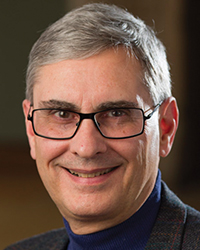An Interview With CRFP’s President
 The Observer talked with APS Fellow John C. Cavanaugh about his insights into bridging academic and industry careers in psychological science. The magazine also profiled three alumni of the Consortium Research Fellows Program.
The Observer talked with APS Fellow John C. Cavanaugh about his insights into bridging academic and industry careers in psychological science. The magazine also profiled three alumni of the Consortium Research Fellows Program.
APS: Your career has featured an impressive trajectory from research to academic administration to education policy. What are your observations after taking those steps?
JC: All three are intertwined in the sense that research, academic administration, and policy creation involve asking very good, insightful questions, then collecting and analyzing data to address those questions. Based on the evidence, decisions are made about how to proceed next. So for me, I did not “give up” doing research, as some see the transition from a more traditional career; I merely moved the focus of that research across topics.
APS: You are a coauthor of several textbook series. What are some of the ups and downs of this kind of work?
JC: Writing for undergraduates is different than writing for peers. There is more need to tell a coherent story, to steer the reader in a direction, and to get them to question while also providing a bit more certainty than one usually does in professional writing, especially in academic journals. The hard part is knowing that people are reading your book, discussing it, critiquing it, and so forth, and not being able to jump into the midst of the discussion firsthand.
APS: What skills or talents do academics need to transition to new or different careers, especially those outside of the university?
JC: I believe quite strongly that the same core skills are needed; that is, the ability to communicate ideas and knowledge clearly, to ask the right insightful questions, and to thrive in the excitement of uncertainty. In my experience, the only thing that has really changed is the target audience. Otherwise, I’m still doing teaching, research, and service using skills that we all hone over time.
APS: What do psychological scientists have to offer to professions outside of academia?
JC: Most important, psychological scientists are taught the mindful mental discipline needed to conceive the possible in the realm of the infinite. We are taught to be skeptical, to wonder, and to be comfortable with uncertainty. And we are skilled at working with diverse groups of people, especially in how they conceive the same questions with which we grapple. Those are the core skills that successful organizations seek, and the ones they most need for success. We have them.



